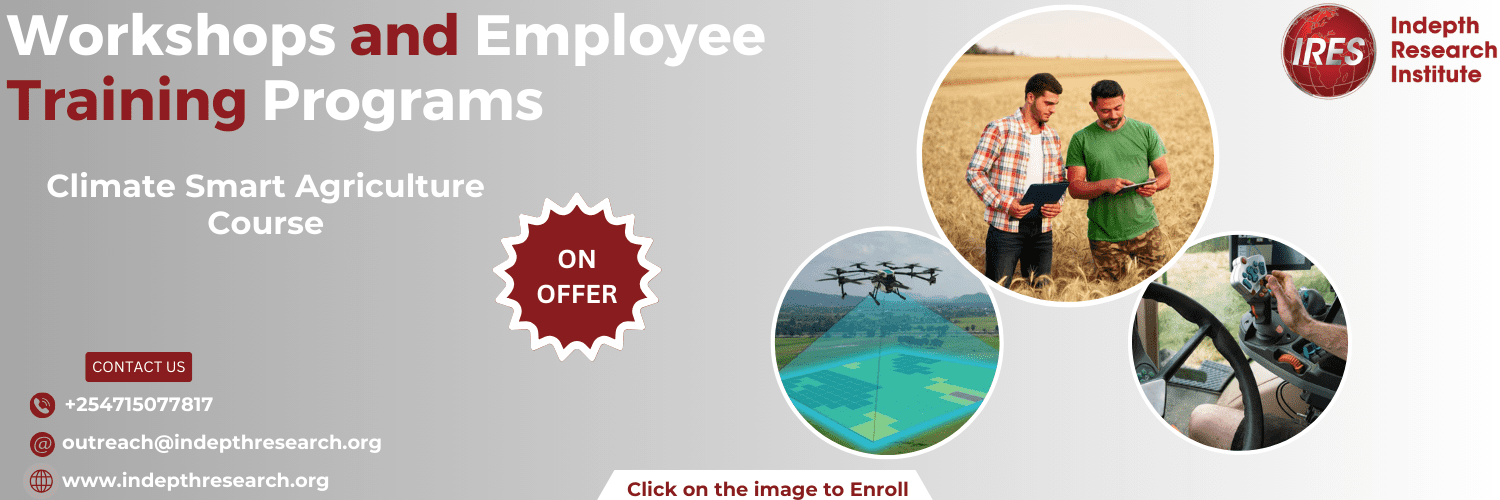Contents
- 1 Introduction
- 2 Embracing Change in Agriculture
- 3 Upskilling: A Pathway to Agricultural Success
- 4 The Benefits of Upskilling in Agriculture
- 5 Strategies for Agricultural Upskilling
- 6 FAQs
- 6.0.0.1 How do agricultural professionals benefit from upskilling?
- 6.0.0.2 Are there specialized upskilling opportunities for sustainable agriculture?
- 6.0.0.3 Can upskilling benefit small-scale farmers?
- 6.0.0.4 How can agricultural businesses promote upskilling among employees?
- 6.0.0.5 Is upskilling a one-time endeavor?
- 6.0.0.6 What role does data science play in shaping the future of agriculture?
- 7 Conclusion
Introduction
In the ever-evolving field of agriculture, embracing change is not just a choice; rather, it’s a necessity for achieving success. The future of agriculture is shaped by remarkable advancements in technology, which necessitate the adaptation of new techniques. Moreover, changing environmental conditions and evolving consumer preferences add to the complexity of the industry. In this article, we will delve deep into the concept of upskilling and its paramount importance in navigating the transformative landscape of agriculture.
Embracing Change in Agriculture
Without a doubt, the agricultural industry is undergoing a profound transformation. This transformation is fueled by an array of innovations, ranging from precision farming techniques to sustainable practices that align with the demands of a rapidly growing global population. The challenge, therefore, is not merely to produce more but to produce smarter. Farmers must embrace innovative methods that can efficiently respond to the increased demand while ensuring sustainability for the future generations.
Upskilling: A Pathway to Agricultural Success
The phrase The Future of Agriculture: Upskilling for Success holds immense significance in an era where agriculture and technology converge. Embracing upskilling isn’t a mere trend; rather, it’s a crucial strategy for staying at the forefront of the agricultural landscape.


Upskilling refers to the process of acquiring new competencies or enhancing existing ones. In agriculture, where technology is rapidly transforming traditional practices, upskilling is the compass that guides us through uncharted territories.
Emerging issues in food security and nutrition; Making Agriculture work
The Benefits of Upskilling in Agriculture
The benefits of upskilling in agriculture are far-reaching and transformative. Let’s explore some of these advantages in detail:
- Enhanced Efficiency: As agricultural practices become more sophisticated, embracing upskilling translates to enhanced efficiency in all facets of farming. Precision agriculture, for instance, employs data-driven insights to optimize planting schedules, irrigation, and harvesting, resulting in increased yields and judicious resource utilization.
- Adaptation to Change: The agricultural sector is no stranger to change, especially with climate variability becoming more apparent. Upskilling equips professionals with the tools to swiftly adapt to changing conditions, ensuring the continued productivity of farms while fostering environmental stewardship.
- Career Growth: Upskilling is a catalyst for professional growth. By acquiring diversified skills, agriculturalists position themselves for higher roles and increased responsibilities within their organizations. It’s not just about staying relevant—it’s about leading the change.
- Innovation: The intersection of agriculture and technology gives rise to innovative solutions. Upskilling enables individuals to contribute to the development of novel strategies, addressing global challenges such as food security and sustainable resource management.
- Marketability: In a competitive job market, those with a versatile skill set stand out. Upskilled agricultural professionals are not only equipped to excel in their roles but also possess the marketability that appeals to prospective employers.


Strategies for Agricultural Upskilling
Effective upskilling requires a strategic approach. Here are some strategies to consider:
1. Identifying Skill Gaps
To embark on a successful upskilling journey, start by identifying your existing strengths and areas that need improvement. This introspective assessment forms the foundation of your upskilling plan.
2. Exploring Online Courses
The digital age offers a plethora of online courses tailored to the agricultural domain. Platforms like Coursera and Udemy provide access to courses on precision agriculture, sustainable practices, and agricultural technology.
3. Participating in Workshops and Seminars
Physical events such as workshops and seminars offer invaluable hands-on experience and networking opportunities. By engaging with industry experts and fellow professionals, you gain practical insights and expand your knowledge base.
4. Collaboration and Learning
Join online forums and social media groups dedicated to agriculture. Engaging in discussions, sharing experiences, and seeking advice from peers fosters a culture of continuous learning and knowledge exchange.
5. Experimentation and Application
Learning by doing is a powerful approach to upskilling. Implement the newly acquired skills in real-world scenarios, evaluating their effectiveness and fine-tuning your strategies based on outcomes.
FAQs
How do agricultural professionals benefit from upskilling?
Upskilling equips agricultural professionals with the tools to stay relevant and adaptable in an evolving industry. It enhances their efficiency, career prospects, and capacity for innovation.
Are there specialized upskilling opportunities for sustainable agriculture?
Absolutely, there are numerous upskilling opportunities tailored to sustainable agriculture practices. These programs cover areas such as organic farming, agroforestry, and regenerative agricultural practices.
Can upskilling benefit small-scale farmers?
Certainly, upskilling is advantageous for small-scale farmers. By acquiring modern techniques, they can optimize their operations, increase yields, and ensure economic sustainability.
How can agricultural businesses promote upskilling among employees?
Agricultural businesses can encourage upskilling by offering financial support for training programs, providing flexible learning arrangements, and fostering a corporate culture that values continuous skill enhancement.
Is upskilling a one-time endeavor?
No, upskilling is an ongoing journey. Given the dynamic nature of agriculture, professionals must continuously update their skills to remain effective and responsive to emerging trends.
What role does data science play in shaping the future of agriculture?
Data science is pivotal in revolutionizing agriculture. Through data analysis, practitioners can make informed decisions, optimize resource allocation, and achieve higher crop yields while minimizing environmental impact.
Conclusion
As the tapestry of agriculture continues to evolve, upskilling emerges as the thread that weaves success. In a landscape marked by technology, changing consumer preferences, and environmental challenges, the Future of Agriculture: Upskilling for Success is a beacon of hope and empowerment. By embracing upskilling, agricultural professionals embark on a journey that not only enhances their careers but also propels the entire industry toward a prosperous and sustainable future.
We have a firm belief that every organization has a unique purpose only they can fulfil in this world. We work with you in organizing your resources to exploit opportunities so that you can fulfil your purpose and realize full potential. We build the capacity of people, processes and systems for organizational success and growth as well as nurturing a thriving ecosystem.
Ready to enhance your skills and boost your career? Explore our corporate training programs now and start your journey to success.









Comment here